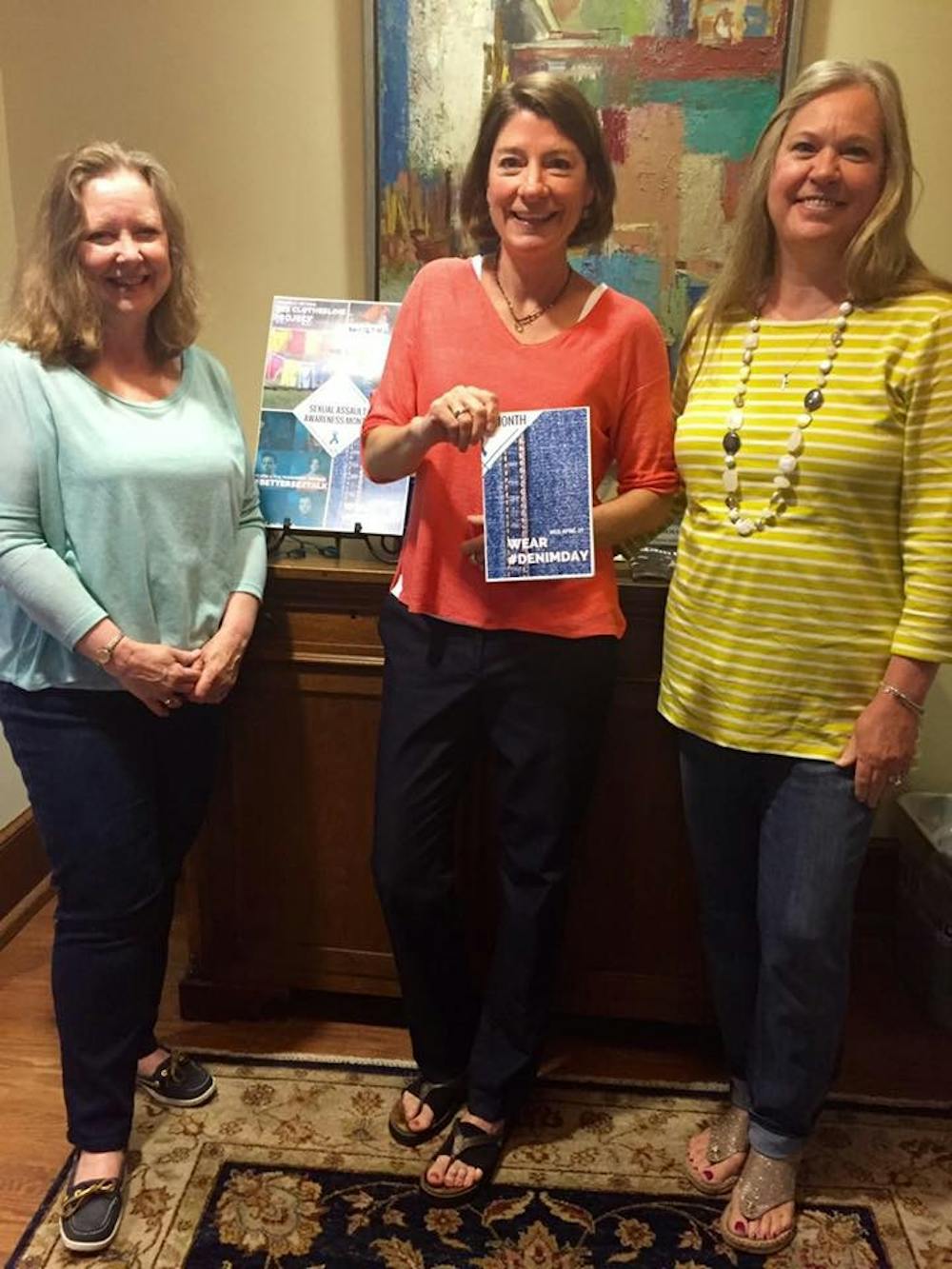This story was updated on Wednesday, August 31, to correct information regarding the funding of Beth Curry's position. The story originally said that Curry's position was funded by the university's Planning and Priorities Committee.
Beth Curry, the former coordinator of campus education, awareness and prevention efforts around sexual assault, left Richmond this month because of the financial insecurity accompanying her position.
“I left UR because my position was grant-funded and the three-year grant cycle would have expired within this year,” Curry said.
The administration has been open about the fact that Curry’s departure was solely caused by the financial insecurity that comes with an impermanent position.
“It’s a grant-funded position, so it’s soft money,” Associate Dean Dan Fabian said.
Curry’s position, which is federally funded by the Department of Justice, was set to end in September, said Maura Smith, Title IX Coordinator and director of compliance. When that grant runs out, the university's Plannings and Priorities Committee can step in and weigh a request for a full-time or part-time, university-funded position against all the other requests they receive. The committee is made up of faculty and staff members who decide what gets funded and what doesn’t.
Curry said the administration told her the Plannings and Priorities Committee was considering multiple important proposals toward the end of the summer, so they could not commit to making her position permanent.
Although grant funding isn’t a certainty, one thing is: Curry will be missed, and her absence will be felt across the Richmond community.
“Beth truly changed campus culture in the most positive way. Her work has helped countless students, survivors and activists on campus,” said Alexandra Abreu, a Title IX intern and facilitator of Spiders for Spiders, the campus bystander training program.
“While I believe students will, and should, be disappointed that she is no longer here, I think this will cause students to pay greater attention to the decisions made by [the] administration," Abreu said. "I encourage students to share with [the] administration why they believe a Sexual Misconduct Educator is a vital position to fund on our campus.”
Curry’s departure comes after almost three years of advocacy work for the prevention of sexual assault on campus. As the faculty leader of Spiders for Spiders, Curry was involved with prevention and education efforts across campus. She also served as an advocate for victims of sexual assault and provided a support system for survivors.
“I really enjoyed my work at UR, especially seeing the momentum that grew behind the Spiders for Spiders movement,” Curry said. “Working with the students was my absolute favorite part of the job and I will miss that greatly, but am confident they will keep working hard to end sexual violence in the UR community.”
In June 2014, Richmond became one of the then 76 schools – the number is now almost 200 – under investigation for a Title IX violation. As a result of the pressure from the federal government, universities are now expanding their expensive Title IX bureaucracies.
Since 2014, Richmond has increased its efforts to prevent sexual violence. One of the steps Richmond took to protect the campus was hiring Curry.
“The university will continue to support these initiatives in a variety of ways, regardless of the method of the funding,” Smith said.
The university received recognition from The Chronicle of Higher Education for its fall 2015 orientation, where students received an innovative program on bystander intervention training led by Curry and student leaders.
“I cannot imagine what these past two years would have been like without Beth here to guide me, inspire me and push me to work harder every day to help end sexual violence,” Abreu said.
The Collegian conducted a survey in the spring of 2015 about campus sexual violence and received responses from more than 1,000 students. About 42 percent of undergraduate female students at Richmond responded to the survey, and more than half of respondents answered that they have experienced some sort of unwanted sexual behaviors while at the University of Richmond.
About 13 percent of female students said they had been sexually assaulted at Richmond.
Associate Deans Fabian and Kerry Fankhauser are the coordinators of the grant that funds Curry’s position. Fankhauser said the university hoped to have a new person in place by the end of October. Members of the VCU community are working with Richmond’s Title IX and psychology department interns to continue the Spiders for Spiders programs and educational efforts on campus until the new coordinator is hired.
Beyond that, the deans are filling in wherever they're needed.
“We are keeping things going," Fabian said. "We aren’t going to let things stop.”

